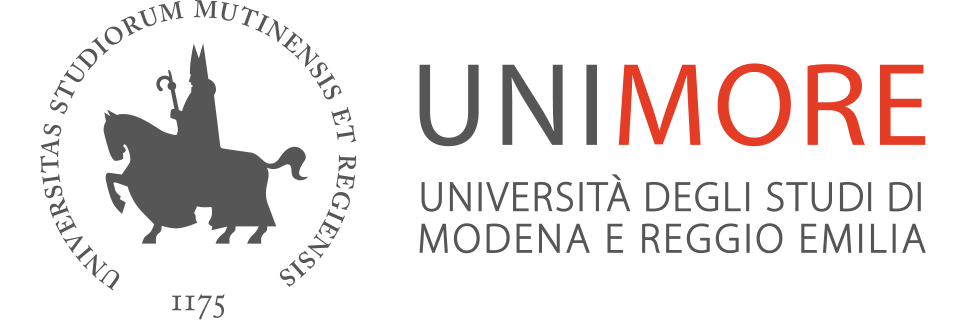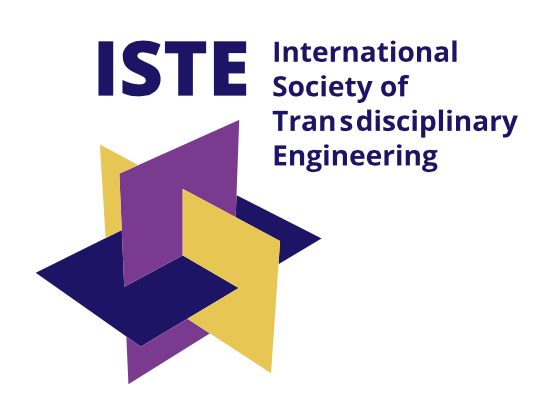Workshops
Parallel workshops on July 2, from 14.30 to 17.30
Progress in Transdisciplinary Engineering (TE)
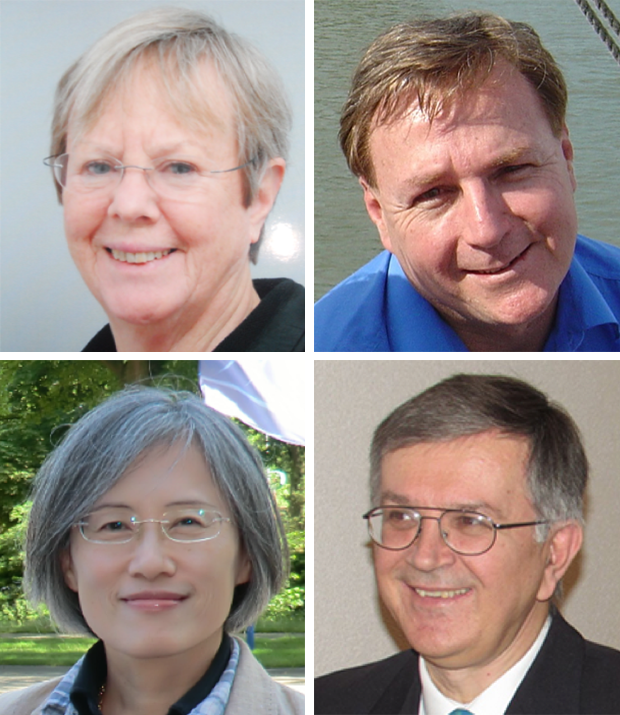 Conveners:
Conveners:
-
Dr. Nel Wognum, Technical University of Delft (The Netherlands)
-
Prof. Cees Bil, RMIT University (Australia)
-
Prof. Amy Trappey, National Tsing Hua University (Taiwan)
-
Eng. Josip Stjepandiç, PROSTEP AG (Germany)
Outline:
- Transdisciplinarity in Engineering
- Research in TE - important themes
- Practice in TE - case studies
- Education in TE
- IT for TE - results and experiences
Bios:
Nel Wognum has received a PhD in Knowledge Systems in 1996. She has been a teacher and researcher in knowledge systems and operations management and innovation at the University of Twente from 1986 till 2007. She has been a researcher in supply chain management in agrifood at Wageningen University from 2007 till 2015. Currently she is a guest at the Technical University of Delft, in particular at the ATO Group. She is General Secretary of the International Society of Transdisciplinary Engineering (ISTE), former ISPE and ISPE, Inc. She has been involved in ISPE, ISPE, Inc. and ISTE since 1996.
Cees Bil is Associate Professor in aerospace systems design at RMIT University in Melbourne, Australia, with a Master of Science and PhD in aerospace engineering from Delft University of Technology in the Netherlands. He has worked in academia for about 30 years in teaching and research in aerospace design, dynamics and control, flight mechanics, unmanned air vehicles and ATM. More recently he is involved in knowledge-management, aerospace operations, life-cycle costing and sustainment. He is a member of the RAeS Australian Division Council, the AIAA Aircraft Design Technical Committee and the ICAS Programme Committee. Since 2015, he is president of the International Society for Productivity Enhancement (ISPE). A name change to ISTE (International Society for Transdisciplinary Engineering) will soon be formalized.
Amy J.C. Trappey is a distinguished professor of Industrial Engineering and Engineering Management at the National Tsing Hua University and was the former Dean in the College of Management at the National Taipei University of Technology. She received her PhD in Industrial Engineering from Purdue University. Her research interests are in knowledge engineering and intelligent decision support systems, particularly for intellectual property (patents, trademarks) management and analytical modeling and intelligent asset health management. Prof. Trappey currently serves as the Associate Editor for Advanced Engineering Informatics and IEEE Transactions on SMC: Systems. Prof. Amy Trappey is an ASME, ISEAM, and CIIE Fellow.
Emerging Importance of Emotional Satisfaction in the Connected Society: from Individual Performance to Team Performance
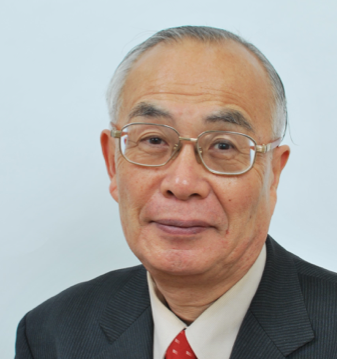 Convener: Prof. Shuichi Fukuda, Keio University (Japan)
Convener: Prof. Shuichi Fukuda, Keio University (Japan)
Abstract: Up to now, we have been focusing our attention on individual products and we made efforts to realize better quality and better performing products. But in the connected society, products are connected and work as a team. Thus, their team performance becomes more important than that of each individual product. And how a product team responds to customers’ expectations will play a very important role in satisfying them. Their expectations vary from time to time and from case to case according to the changing situations, and how a product team responds to such changes will bring them more joy and satisfaction than individual excellence in quality or performance. In short, the value of products in the connected society is very similar to the team sports. We enjoy them not by observing the excellence of individual players, but how they play together strategically in response to the changing situations. Thus, in the connected society, what we should focus upon and what we should sell is not the products, but emotional satisfactions, which answer to our customer expectations toward excellent adaptive play.
Bio: After receiving Doctor of Engineering in Mechanical Engineering from the University of Tokyo in 1972 and working at the University of Tokyo, Osaka University and again University of Tokyo, Prof. Shuichi Fukuda joined Tokyo Metropolitan Institute of Technology (TMIT) (now Tokyo Metropolitan University) as Professor in systems engineering. He served Department Chair, Adviser to the University President, Dean of Engineering, Dean of Library and Information Systems and Director of Center for University-Industry-Government Collaboration. During these years, he worked as Visiting Professors at Stanford University, West Virginia University and Osaka University. Since his retirement from TMIT (TMU) in 2007, he worked as Consulting Professor at Stanford University, Visiting Professor at Open University of Japan and Cranfield University, UK. He is now Adviser to System Design and Management Institute, Keio University and Member of Engineering Academy of Japan. He is past President of ISPE (International Society for Productivity Enhancement), Vice President of Reliability Society, IEEE, and past Chair of Computers and Information in Engineering Division, ASME and Deputy Technical Group Leader, Systems and Design Group, ASME. His research Interests are systems engineering, design engineering, emotional engineering, collaboration engineering, reliability engineering, decision making and management of engineering and technology. He is member of Engineering Academy of Japan, Honorary Member of JSME and Fellow of ASME, IEICE (Institute of Electronics、Information and Communication Engineers) and ISPE (International Society for Productivity Enhancement) and Glory Member of Reliability Engineering Association of Japan.
Designing the Future: Resilient Trans-Disciplinary Design Engineers
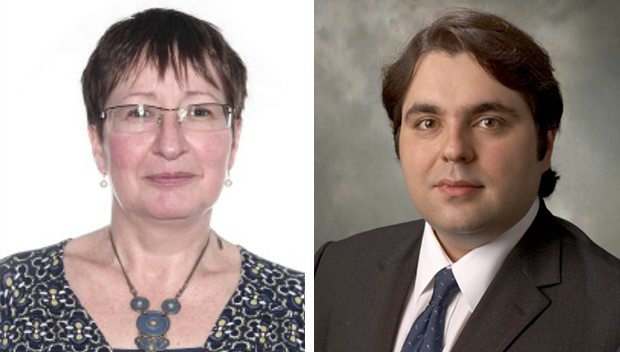 Conveners:
Conveners:
-
Prof. Linda Newnes, University of Bath (UK)
-
Dr. Aydin Nassehi, University of Bristol (UK)
Abstract: To realise the ‘Manufacturing the Future’ utopia, requires ‘Designing the Future’ through the development of tools and competences for future resilient manufacturing; this future builds on the past and present (product and associated service knowledge) but anticipates and predicts the needs of the future by creating a new breed of ‘Trans-Disciplinary Design-Engineer’. This vision needs design and manufacturing researchers to: (1) create a trans-disciplinary suite of tools (e.g. a toolkit depository) and an intellectual framework to support the next- generation 3D/4D additive, traditional subtractive and
hybrid manufacturing communities; (2) capture and integrate known design expertise across sectors into a local feed-forward hub to accelerate the integration of new materials, processes and technologies into existing and future products; (3) develop trans-disciplinary engineers (at the boundary of design-manufacturing) to accelerate the ‘manufacturing the future’ outcomes into tangible products and wealth.
In this regard, the workshop will focus on answering the following questions:
- How can we understand and characterise domain specific disruptive change occurring through new manufacturing technologies? And
- How do we rapidly engineer an integrated design and manufacturing tool kit to enable cross-sector uptake of these new technologies?
As part of the outputs from the workshop we will provide a summary report of the findings and outputs to all workshop attendees.
Bios:
Prof. Linda Newnes – Linda is a Professor of Cost Engineering in the Department of Mechanical Engineering at the University of Bath. She specialises in estimating the cost of complex engineering systems. For example, consider the challenge in estimating the cost involved in the design, manufacture and operation of an aeroplane. How should a model be constructed? What should be included? Are some factors more important than others? And moreover, how does one factor impact another? Her research provides answers to these questions. She has shown that a system based approach to cost modelling is required and that human factors, sub-system interdependencies/impacts and supply chains need to be modelled to estimate the cost. This socio-technical systems view underpins our approach to transdisciplinary research and is being used to build the 5-year research programme she is leading into creating skills and models to enable trans-disciplinary Engineering Design. Linda has published more than 140 refereed papers, been funded as part of large consortia grants (£26M+) and has been awarded individual research funds of more than £6M.
Dr. Aydin Nassehi - Aydin Nassehi is a Reader in Manufacturing Systems at the University of Bristol. His expertise is in manufacturing interoperability, computational informatics including energy efficiency modelling and analysis of manufacturing processes and knowledge based CAD/CAM and CAx systems. He has received £4m of national and international research funding and taken part in two FP7 projects namely DEMAT and, as the technical leader, STEPMAN. He has published over 98 refereed papers and been on technical & scientific committees of a number of international conferences including the FAIM series of conferences since 2008. He is a CIRP Associate Member, the convener of ISO standards group in charge of developing ISO14649 for cyber physical manufacturing resources (ISO TC184/SC1/wg7) and the Senior Editor of the International Journal of Computer Integrated Manufacturing.

